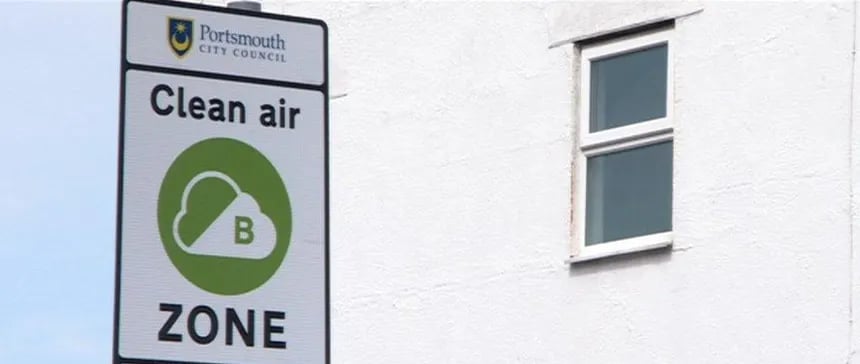Merry Christmas and a Happy New Year!
Portsmouth Councillors Upbeat on Air Quality Progress Despite Ongoing Clean Air Zone
Portsmouth councillors have expressed optimism about the city’s improving air quality, even as the Clean Air Zone (CAZ) looks set to remain in place for several more years.
ENVIRONMENTLOCAL NEWS
Best Of Portsmourh
6/25/20252 min read


Portsmouth councillors have expressed optimism about the city’s improving air quality, even as the Clean Air Zone (CAZ) looks set to remain in place for several more years. At a cabinet meeting this week, members reviewed a new report showing steady progress in reducing nitrogen dioxide (NO₂) levels across the city.
The CAZ, introduced in late 2021, covers a section of Portsea Island and targets older, more polluting vehicles. Buses, coaches, lorries, and taxis that don’t meet emissions standards are charged to enter the area—though private cars and vans remain exempt.
According to the latest data, nearly all vehicles passing through the zone now meet clean air standards. Fewer than 1% of vehicles are still subject to the charge, signalling a strong shift toward cleaner transport.
The report also confirmed that traffic within the CAZ remains the largest contributor to NO₂ in the worst-affected areas. However, the number of older diesel vehicles is declining, replaced by cleaner alternatives such as electric vehicles and modern Euro 6 diesel engines.
If these trends continue, Portsmouth could achieve legal air quality levels by late 2025 or 2026—potentially without the need for additional interventions. Despite the promising outlook, the council must demonstrate two full years of consistent compliance before the government will officially deem the issue resolved.
While the council submitted proposals for funding to support behavioural change initiatives, the Department for Transport rejected them, citing a lack of cost-effectiveness—particularly given how close the city is to reaching its targets.
Councillor Lee Hunt welcomed the findings, stating the report “vindicates our stance” in choosing not to impose a city-wide CAZ, which he argued would have disproportionately affected low-income residents.
Councillor Peter Candlish noted that the government had “commended our much wider approach” to tackling air pollution, though he voiced frustration over the refusal to support long-term behavioural strategies.
Council Leader Steve Pitt struck a cautionary note, stressing that legal compliance is not the same as eliminating the health impacts of air pollution. “This isn’t just about ticking a box,” he said. “We must continue to use every tool available to improve the air we all breathe.”